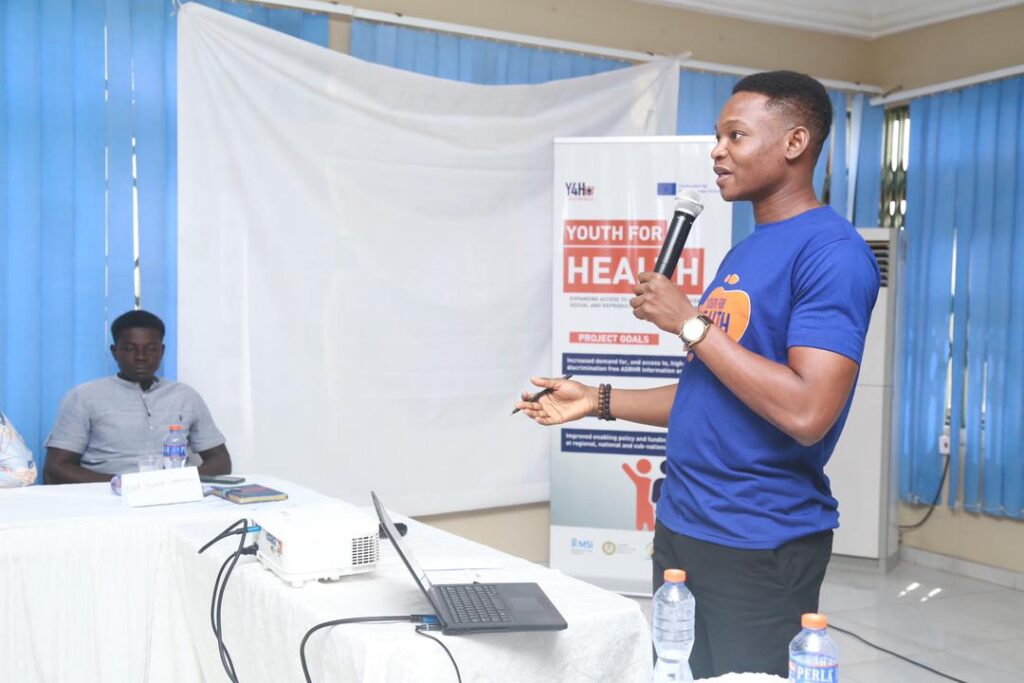It has been identified that adolescents in Ghana whether they are in school or out of school, face several risks. These risks include neglect which could be in the form of medical, financial, emotional, and physical, and a general lack of supervision. Some equally encounter various forms of violence, abuse, and exploitation.
Some adolescents, especially girls, have had to endure sexual harassment and sexual violence including inappropriate touching, defilement, and rape.
Adolescents are equally exposed to exploitation, teenage pregnancy, drug and substance abuse, bullying, and cyberbullying amongst a wide range of risks.
It is on this score that Youth Advocates Ghana in partnership with Marie Stopes International as lead implementers implementing a three-year project dubbed Youth For Health with support from the European Union (EU) to increase demand for, and access to, high-quality, discrimination-free Adolescent Sexual and Reproductive Health and Rights in six districts of the Upper East and Northern Regions.
In the Upper East Region, the project is being implemented in three districts including Bolga East, Bongo, and Binduri District while Nanumba North, Nanton, and Saboba Districts are the beneficiary districts in the Northern Region.
As part of the implementation, heads of basic and second circle schools from the beneficiary districts in the Upper East Region are being engaged as part of a two-day workshop which started on January 25 and ended on January 26 as they hope to improve access to age-appropriate information, support and help in revitalizing school health clubs.
Speaking to Dreamz News, Macdonald Abopaam, Policy and Advocacy Manager, Youth Advocates Ghana, notes that it is the hope of the organization that they will be able to avert some unintended pregnancies, revive school health clubs, and build the capacities of school heads to give students the guidance to be able to make informed choices.
“We have realized that we have had several issues when it comes to adolescent reproductive health. Teenage pregnancy among others including STI infections has been glaring on our faces for a long time so we have decided to focus on adolescents and young people specifically from 10 to 24 years.
We have seen these are in basic schools and some are in senior high school so that’s why we are targeting this particular population we hope that by the end of this program, we will avert some unintended pregnancies, build the capacity of teachers and heads to be able to guide the students to make informed choices.” He stressed.

Meanwhile, the Upper East Regional School Health Education Program (SHEP) Coordinator, Issaka Anas Abdullai, noted that the engagement is necessary as he explains that social vices are adversely affecting the education of children. A situation, he believes requires improved collaboration.
“This is important in the sense that most of our students lack information as to their sexual and reproductive health education so this program will build the capacity of head teachers and school-based health teachers to be able to give the needed assistance to the students.
We need a strong collaboration of the school, parents, and other stakeholders to be able to tackle issues of teenage pregnancy, abuse, gambling among other vices the youth engage in.” He noted.




